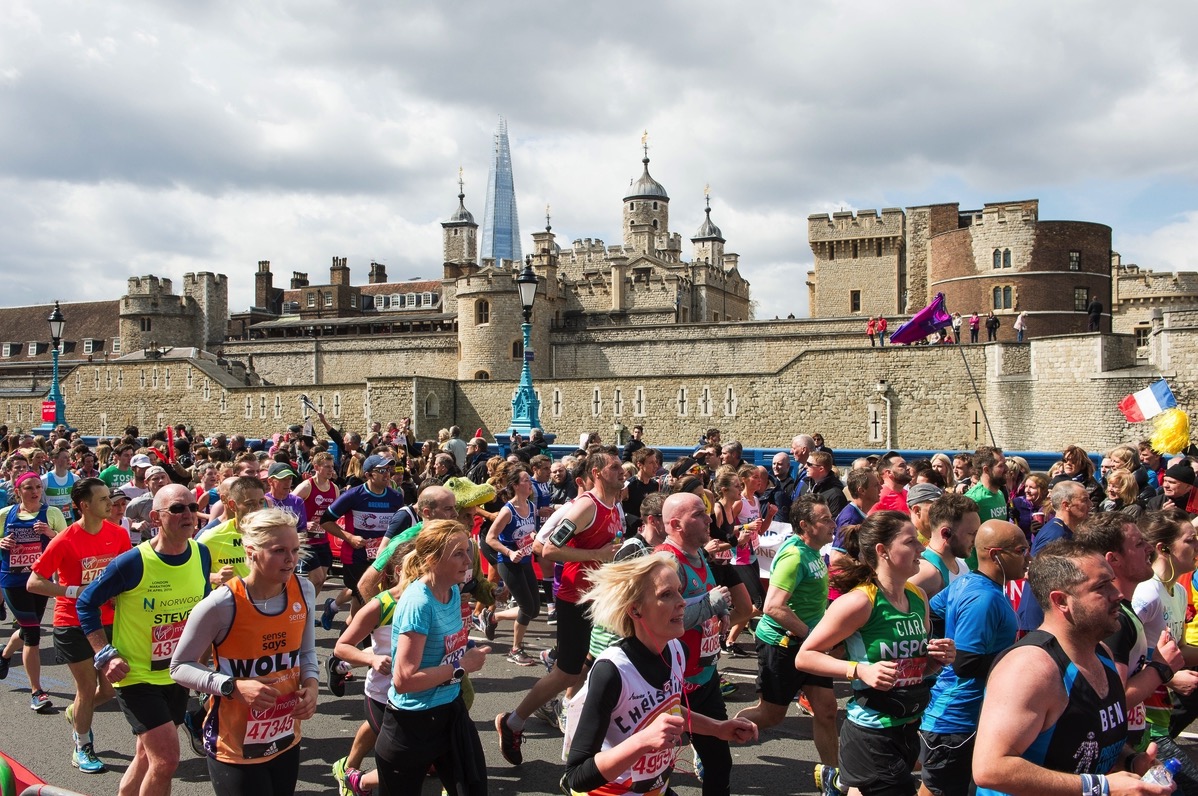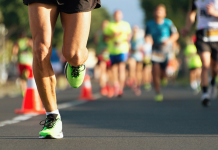Whether you’re a seasoned pro or a fitness newbie, injuries can happen to anyone at any time. This is especially true for runners. In fact, each year, 65 percent of all runners will experience an injury at some point.
It’s not uncommon for runners and other active individuals to put on a few extra pounds while they recover, but it’s definitely not a requirement, either.
Listed below are some easy ways for you to avoid gaining weight while you’re recovering from an injury.
1. Look for New Ways to Exercise
Even if you can’t run, there are still lots of other things you can do to get a good workout in while you’re recovering from an injury. Whether you’re managing a sprained knee or nursing a broken ankle, cycling is a great option for runners with lower body injuries.
You can also give your lower body a break altogether with upper body-focused forms of cardio like rowing or using an arm cycle machine (this machine looks similar to a stationary bike, but your “pedal” with your arms instead of your legs).
This is also a great time to focus on strength and stability exercises. This includes resistance training and mobility exercises to correct muscle imbalances and become more aware of your body’s strengths and weaknesses.
Workouts like pilates and yoga can also be beneficial. Practicing these types of exercise regularly may help you recover faster and avoid future injuries.
2. Eat Fewer Calories
When you’re a runner, especially a distance runner, it’s easy to get into the habit of eating large quantities of calories seemingly without any consequences. When you’re dealing with an injury and aren’t burning lots of calories during your workouts, it’s important to adjust your calorie intake to make sure you’re not eating in a caloric surplus and accidentally causing unintended weight gain.
Adjust your portion sizes and make sure you’re eating enough to maintain your current calorie expenditure. There are lots of online calculators that can help you figure out roughly how much you should be eating to avoid gaining or losing weight.
Another easy way to avoid consuming too many calories is to make sure you’re not getting lots of them from your drinks. Alcoholic drinks, sodas, and juices are all high in sugar and calories and can easily add up if you’re drinking them throughout the day.
3. Make Sure You’re Eating Sufficient Protein
When you decrease your caloric intake, it’s common to feel hungrier than normal for a few days or so. It can take a while for your body to adjust and realize that you don’t need to be eating as much as you once were.
One way to offset this extra hunger is to make sure you’re eating sufficient amounts of protein. Protein is the most satiating macronutrient, meaning it will help you feel fuller, longer.
Protein is also essential for injury recovery since it provides your body with the building blocks (amino acids) it needs to make new protein and repair muscles. Eating sufficient amounts will help you maintain your muscle mass during the recovery period as well.
Animal products like meat, fish, eggs, and full-fat dairy are the best, most complete sources of protein. If you don’t eat animal products, you can also get protein from nuts, seeds, some grains (such as quinoa).
4. Lower Your Carbs and Replace Them with Fat
Runners typically do best when they’re eating larger amounts of carbohydrates. However, if you’re not doing a lot of intense exercise, you probably don’t need to be eating as many carbs as you once were.
In addition to upping your protein intake, you can also increase satiety and prevent fat gain by swapping out some of your carbohydrates for additional dietary fat.
Contrary to popular belief, fat is not a bad thing. In fact, it’s necessary for a variety of functions in the body, from hormone production to heart and brain health.
Of course, it’s important to make sure you’re getting your fat from healthy sources, such as avocados, extra virgin olive oil, olives, and nuts and seeds. This definitely isn’t an excuse to indulge in french fries and ice cream at every meal.
Final Thoughts
Recovering from an injury can be a frustrating process, especially if you’ve noticed that you’re gaining weight at the same time. Implementing these practices can help you avoid adding weight to the scale and may also help speed up your recovery.
























